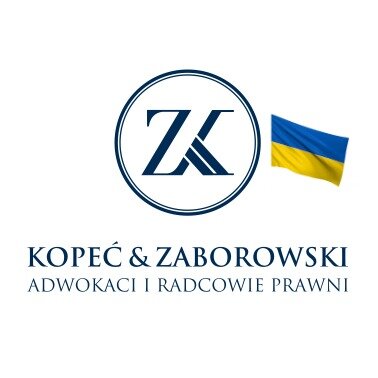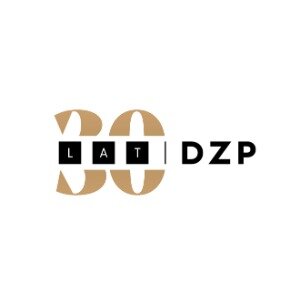Best Public-Private Partnerships (PPP) Lawyers in Warsaw
Share your needs with us, get contacted by law firms.
Free. Takes 2 min.
List of the best lawyers in Warsaw, Poland
About Public-Private Partnerships (PPP) Law in Warsaw, Poland
Public-Private Partnerships (PPPs) represent a collaborative arrangement between public sector entities and private sector participants to deliver infrastructure projects or public services. In Warsaw, as in the rest of Poland, PPPs are increasingly utilized to address challenges related to infrastructure modernization, urban development, transportation, healthcare, and education. PPPs allow the city and its agencies to benefit from private-sector expertise, innovation, and finance, while the private sector gains opportunities for long-term investments and stable revenue streams. The legal framework governing PPPs in Poland seeks to ensure transparency, efficiency, and the balanced allocation of risks between the public and private participants.
Why You May Need a Lawyer
Engaging in a Public-Private Partnership involves navigating complex legal, financial, and operational requirements. People and businesses may require legal assistance in various situations, such as:
- Drafting and negotiating PPP contracts and agreements
- Understanding regulatory requirements and compliance obligations
- Assessing project risks and advising on risk mitigation strategies
- Participating in tender procedures and responding to public procurement processes
- Resolving disputes between partners, including mediations and court proceedings
- Structuring the investment and financing aspects of PPP projects
- Securing necessary permits, approvals, and licenses from authorities
- Advising on tax implications and potential incentives
- Monitoring ongoing performance and compliance during the lifespan of the PPP
A lawyer specializing in PPP law can provide crucial support at all stages of a project, from its inception to completion.
Local Laws Overview
Public-Private Partnerships in Warsaw are primarily governed by the Act of 19 December 2008 on Public-Private Partnership, along with related regulations concerning public procurement and concessions. The most important legal aspects include:
- PPP Act: Sets the legal foundation for PPPs, defining eligible projects, roles, and procedures for forming partnerships between public agencies and private partners.
- Public Procurement Law: Requires that most PPP projects follow strict tendering procedures to ensure fairness, competition, and transparency.
- Concession Law: Regulates situations where private partners operate infrastructure or provide services in return for the right to collect user fees.
- Risk Allocation: The law emphasizes fair sharing of risks and benefits between the public and private partners, with specific rules on liability, guarantees, and financial arrangements.
- Permitting and Supervision: Local authorities supervise project implementation, granting necessary permits and monitoring compliance throughout the partnership lifespan.
- EU Law Influence: As an EU member, Poland aligns its PPP regulations with relevant European Union directives on procurement, competition, and state aid.
Engaging legal counsel ensures compliance with all local requirements, minimizing the risk of delays or disputes.
Frequently Asked Questions
What is a Public-Private Partnership (PPP) in the context of Warsaw, Poland?
A PPP in Warsaw is a cooperative project between a public authority (such as the City of Warsaw or a municipal agency) and a private company, established to create, renovate, or operate public infrastructure or services.
Are there specific laws regulating PPPs in Warsaw?
Yes, PPPs are regulated by national laws, primarily the Act on Public-Private Partnership, the Public Procurement Law, and other related regulations. The City of Warsaw may also have specific guidelines or policies for implementing such projects.
What types of projects can be developed through PPPs?
Common projects include roads, public transport, schools, hospitals, waste management, energy infrastructure, and cultural facilities, among others.
Who can participate as a private partner in a PPP?
Any entity, including Polish and foreign companies, consortia, or non-governmental organizations, can act as a private partner if they meet the requirements set by the public authority and legal provisions.
How are PPP projects awarded in Warsaw?
Typically, projects are awarded through competitive public tenders, ensuring transparent selection of the most suitable private partner based on clear evaluation criteria.
What are the main advantages of PPPs for both public and private participants?
PPPs offer public entities access to private capital and expertise, enabling faster and more cost-effective project delivery. Private partners gain long-term contracts and stable return opportunities.
How are risks shared between the public and private sectors?
Risks are allocated based on which party is best positioned to manage them. Contracts specify responsibilities related to financing, construction, operation, maintenance, and unforeseen events.
What happens if a dispute arises between PPP partners?
Most PPP contracts set out dispute resolution mechanisms, which may include negotiation, mediation, arbitration, or litigation before Polish courts.
Are there any tax benefits or incentives for PPP participants?
Certain projects may qualify for tax reliefs or other incentives; this depends on government or municipal policies and should be verified with a legal advisor.
How long does it take to implement a PPP project?
Timelines vary widely depending on the project’s complexity, but each phase - preparation, tender process, agreement negotiation, and implementation - may take several months to several years.
Additional Resources
Several organizations and bodies in Poland can provide further guidance and resources related to PPPs:
- Ministry of Funds and Regional Policy (Ministerstwo Funduszy i Polityki Regionalnej) - oversees PPP policy and publishes guidelines and studies
- Polish Agency for Enterprise Development (Polska Agencja Rozwoju Przedsiębiorczości) - offers support for entrepreneurs and investors in PPPs
- Public Procurement Office (Urząd Zamówień Publicznych) - provides information on procurement regulations and upcoming tenders
- Warsaw City Hall (Urząd m.st. Warszawy) - local authority responsible for municipal PPP initiatives
- Professional associations and chambers of commerce - connect prospective partners and offer networking opportunities
- Legal and consulting firms - specialized advice and support throughout the PPP process
Next Steps
If you are considering entering into a public-private partnership or are currently involved in a PPP project in Warsaw, the following steps are advisable:
- Clearly define your project's goals and assess its suitability for a PPP structure
- Review the legal and regulatory requirements, including the need for permits or approvals
- Consult with a lawyer experienced in PPP law to evaluate risks and support contract negotiations
- Engage with local authorities, industry specialists, and relevant organizations to gain further insights
- Prepare detailed project documentation and participate in information sessions or workshops, if available
Early legal advice can significantly improve your understanding of obligations, reduce risks, and enhance the likelihood of PPP project success in Warsaw. Consider reaching out to a qualified legal advisor to discuss your specific needs.
Lawzana helps you find the best lawyers and law firms in Warsaw through a curated and pre-screened list of qualified legal professionals. Our platform offers rankings and detailed profiles of attorneys and law firms, allowing you to compare based on practice areas, including Public-Private Partnerships (PPP), experience, and client feedback.
Each profile includes a description of the firm's areas of practice, client reviews, team members and partners, year of establishment, spoken languages, office locations, contact information, social media presence, and any published articles or resources. Most firms on our platform speak English and are experienced in both local and international legal matters.
Get a quote from top-rated law firms in Warsaw, Poland — quickly, securely, and without unnecessary hassle.
Disclaimer:
The information provided on this page is for general informational purposes only and does not constitute legal advice. While we strive to ensure the accuracy and relevance of the content, legal information may change over time, and interpretations of the law can vary. You should always consult with a qualified legal professional for advice specific to your situation.
We disclaim all liability for actions taken or not taken based on the content of this page. If you believe any information is incorrect or outdated, please contact us, and we will review and update it where appropriate.
















